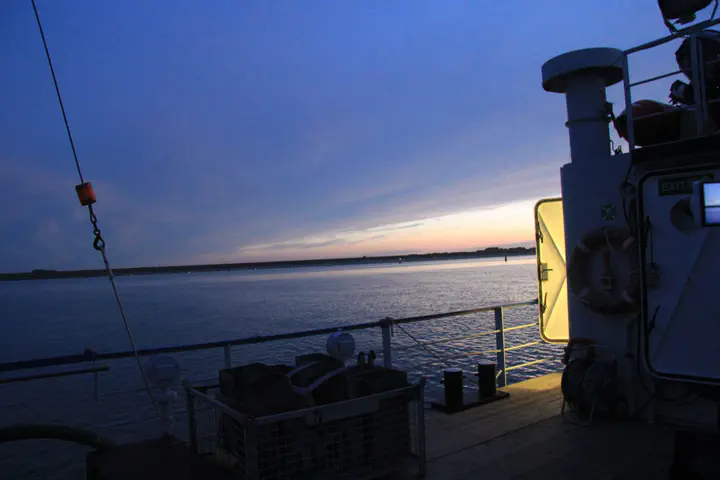SIBES Project
 On board the Navicula. Jessica Bernal.
On board the Navicula. Jessica Bernal.SIBES -Synoptic Intertidal Benthic Survey- is a monitoring scheme for sampling intertidal macrofauna across the Dutch Wadden Sea. It is partly funded by NAM for the ecological monitoring of the gas drilling areas in the eastern Wadden Sea.
The systematic monitoring data obtained with SIBES are an essential component of the many studies explaining how animals (birds, fish) distribute, and how their survival prospects depend on habitat use.
SIBES uses a gridded sampling design that encompasses the entire Dutch Wadden Sea, with a combination of sample points taken at 500m intervals, and additional random sample points. Thus, it maximises effectiveness at minimal costs.
Today, SIBES contains more than six thousand sampling points, some of which are also located on the German mudflats. The project has also set the bar for sampling in other tidal areas around the world. Not only has SIBES set the standard for the way benthic organisms are sampled on flats, it has become an export product that the Netherlands can be proud of.
At the end of 2018 NIOZ published a booklet ‘Ten years SIBES’. In this booklet you will find a series of interviews with the people who are directly and indirectly involved in the Synoptic Intertidal Benthic Survey of the Wadden Sea From the initiators to the people in the field to the stakeholders from science, society and the government. They outline the importance of this project for their daily work. They also speak with the people steering the future of SIBES. Can we afford to work without this kind of fundamental long-term research? And shouldn’t we extend the work even further to the other countries along the shores of the Wadden Sea and also to the subtidal areas of the mudflats?